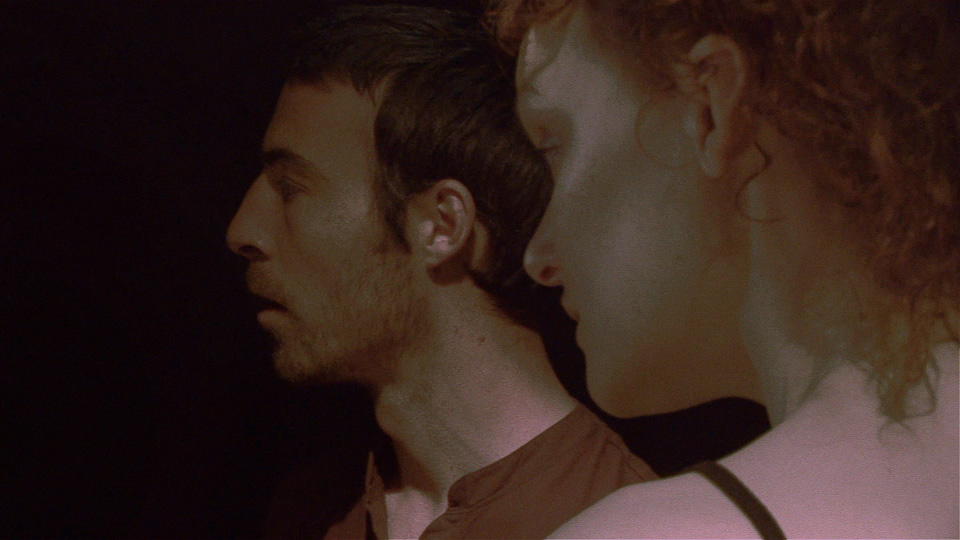Victor Alimpiev. Vot
Victor Alimpiev’s videos draw on experiences from different fields of artistic creation, in particular painting, theatre, dance and music. The absolute protagonist of these works is the human figure, almost always presented in a group, through the slow repetition of certain gestures, to create a growing tension destined to end in an empty monotony. The romantic atmospheres, induced by a tonal research tending towards pink, contribute to the creation of a lyrical suggestion that the artist uses to narrate the contradictions and feelings of the Russian people, forced to question or transfer to an intimate and personal level the values and symbols of their own history. In Weak Rot Front (2010), for example, the clenched fist from a revolutionary symbol becomes an instrument of discovery of the other, a unifying element of a chain in continuous transformation. In the video To Trample Down in an Arable Land (2009), the pale pink flags on the scene, emptied of their original meaning and strength, evoke past ideologies.
In the video Vot (2010) a group of five actors perform a vocalisation made up of erased words that overlap in a dissonant manner, rendering the speech incomprehensible. The language used is French. Only at the moment when the Russian word “vot” (here, but also therefore) is pronounced do the different sounds, the different speeches, seem to find an agreement, a synchrony, a compositional logic. The work was filmed in Toulouse with French actors, who did not know the meaning of the word “vot” at the time of the performance. The light-shadow contrast, a recurring feature of Alimpiev’s work, makes the whole context theatrical, highlighting its artificiality. The bodies of the actors act individually, as if on a stage, while the gestures generate a growing tension, destined to be resolved at the moment of the pronouncement of “vot”. With this work, Alimpiev seems to express the complexity of the dynamics of dialogue between individuals, the difficulty in finding moments of convergence between separate discourses, in defining shared concepts. What the artist aims at, in terms of perspective, is the construction of a perfect community through the exercise of participatory thinking about what we are. An exercise of the theatrical communities with which Alimpiev has had the opportunity to work (in 2005, he directed, with Marian Zunin, the show We’re talking about music, produced for the Teatro Metastasio in Prato). At a time of radical transformations in his country, Alimpiev seems to want to bring the discourse back to the possibility of a common element, unitary and harmonious, in relation to the destinies of a people in search of new identities.
EX3 Centre for Contemporary Art, Florence
10.11.2011-06.01.2012Date
November 11, 2011
